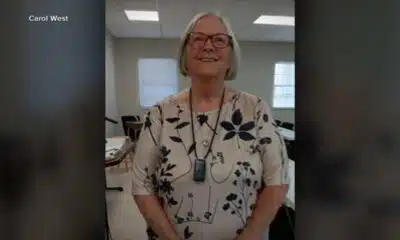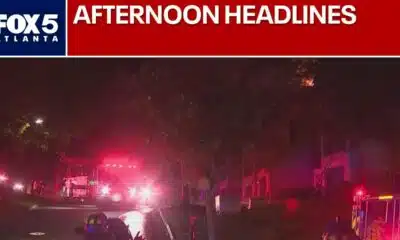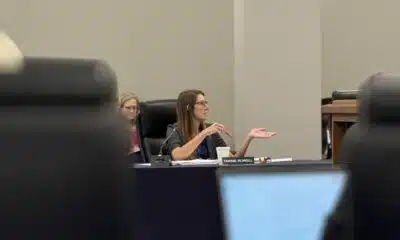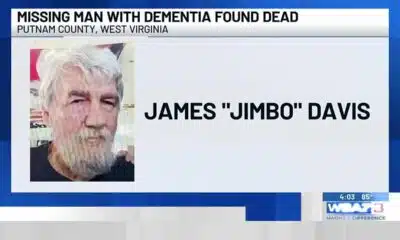News from the South - Louisiana News Feed
Q&A with University of Louisiana System President Rick Gallot on higher education
by Piper Hutchinson, Louisiana Illuminator
April 18, 2025
This is an interview with University of Louisiana System President Rick Gallot that took place earlier this month about how the legislative session and federal changes will impact higher education in Louisiana. It has been edited for length and clarity.
You can also listen to a version of this interview on our new podcast The Light Switch.
Piper Hutchinson: What do you think is coming for higher education this session?
Rick Gallot: I think certainly starting with a standstill budget is always better than starting with a proposed cut. So, you know, we’re certainly very grateful for that. I think there’s a lot of uncertainty, coming out of Washington and with the constitutional amendments that did not pass, obviously that has created some angst in terms of what do we do now, right? And so I think there is, again, just an overall level of uncertainty that we’ll see it … kind of play out over time.
I think if you look at the increased revenue from the sales, sales taxes and other things, we’re certainly not in a real bad spot right now as a state in terms of our finances. So I’m still optimistic that we will work through the challenges in the session, and we will come out good on the other side.
Hutchinson: Looking at the bills that we have so far, what do you think is going to be the most impactful for higher education?
Gallot: It’s hard to say, and when you look at what’s filed versus what ultimately makes it through the process; all bills filed on the front end don’t always make it. Rep. (Emily) Chenevert has come back with another diversity, equity and inclusion bill. We will certainly have to see how that plays out. The bill she had last year started one way and ended up another. … Certainly with all other higher ed leaders, she was very receptive to meeting with us and working through some of those challenges last year. At the end of the day, I think the budget is always going to be the main focus that could impact the trajectory going forward.
Hutchinson: There’s one bill that’s going to have a big impact for your system, talking about transferring UNO back to the LSU System. What should we expect on that front?
Gallot: For me personally, it’s a full-circle moment. I was in the house when UNO was transferred from LSU to the University of Louisiana System. You know, I just want what’s best for the students, for the campus community at the University of New Orleans. It is a legislative prerogative. They have the authority to transfer universities from one system to the other. So if this legislation is successful, we will certainly do our part to ensure that it is a seamless transition. We will work with LSU, with Board of Regents and with the legislature to ensure that the transition is as smooth as it could possibly be.
Hutchinson: What’s that like for you [as a former legislator] during the legislative session, being kind of outside the rails?
Gallot: Well, I certainly have a lot of respect for our legislators and the sacrifices they all make in serving. I’m a huge fan of Stephen Covey’s “Seven Habits,” and one of those is: “Seek, first to understand then to be understood.” And so I think that’s helpful to understand the pressures that our legislators are under, knowing that there’s a lot that they have to balance. I think it’s helpful, quite frankly. And I don’t think I burned any bridges while here.
I mean, I did oversee redistricting, so maybe I did [burn] one or two. But for the most part, I still have good relationships with many of my former colleagues … who are still there. I’m grateful to have the opportunity to be a part of the process but from this side.
Hutchinson: There has been a little bit of controversy in the LSU System lately, that’s reignited these conversations about curbing tenure. What are you hearing on that front, and what would that mean for higher education as a whole if they did take an axe to tenure?
Gallot: Going back to COVID, and you think about faculty members, who go through the process of, not only a bachelor’s and a master’s and a terminal degree. You know, they get hired, they’re on a tenure track, they’re researching, they’re writing, they’re building their portfolio, and at the appropriate time they apply for tenure. I think we have to respect that process.
I think it is one that is deeply rooted in higher education, and so I think we certainly have to respect faculty and that they have earned this.
Now, having said that, it’s always one or two bad apples that will spoil the barrel, as they say. I don’t know that simply doing away with tenure is the answer.
If the legislature passes something, then we, as a state system, will certainly abide by whatever changes may be made. I think we want accountability at all levels, that we want our students to be in the best position to learn. We want our faculty to be in the best position to teach, and that our students would graduate and go out and make a difference in society. So we’ll certainly be watching it closely, and hopefully we will see thoughtful debate throughout the process. And again, with whatever the ultimate result is, we will work with it.
Hutchinson: I can’t not talk about what’s going on at the federal level. We’re talking about cutting research funding. There are concerns about immigration and graduate students, and certainly tariffs could increase expenses for higher education. How is the UL System adapting to all of this?
Gallot: Right now there’s so much uncertainty just across the board. Whether it’s the potential loss of research funding and indirect cost, for instance, universities build their budgets based upon what they believe the revenue stream will be from these research grants. I’m hopeful that we will sort of get through this period of uncertainty, and we will see things sort of settle down to be a little more predictable. But you know, at the same time, we will have to adjust if the rules are changed. If the funding formulas are changed, we will just have to adapt. We always have and we always will.
GET THE MORNING HEADLINES.
YOU MAKE OUR WORK POSSIBLE.
Louisiana Illuminator is part of States Newsroom, a nonprofit news network supported by grants and a coalition of donors as a 501c(3) public charity. Louisiana Illuminator maintains editorial independence. Contact Editor Greg LaRose for questions: info@lailluminator.com.
The post Q&A with University of Louisiana System President Rick Gallot on higher education appeared first on lailluminator.com
News from the South - Louisiana News Feed
Wagers on touchdowns, strikeouts and even penalties: States eye limits on prop bets
by Kevin Hardy, Louisiana Illuminator
September 9, 2025
As a bankruptcy attorney, New Jersey Assemblymember Dan Hutchison said he sees clients “all the time” whose betting on football and baseball quickly leads to missed car payments, delinquent mortgages and, ultimately, bankruptcy.
The rise of live, in-game bets — in which a gambler could place more than 200 individual bets during a baseball game if they wager on each pitch thrown — has only amplified his misgivings.
“And I’m like, are you kidding me? I mean, they’re betting on the next pitch, the next play, and it’s constant,” he said. “There’s no pause. It’s just not healthy.”
Worried that those bets can worsen problem gambling and threaten the integrity of sports, Hutchison, a Democrat, introduced legislation to ban New Jersey gambling licensees from offering live bets on individual plays during sporting events.
That bill illustrates growing state interest in regulating proposition bets, commonly called prop bets, a form of sports betting that is popular with fans but worrisome for sports leagues and state officials nationwide.
Unlike wagering on which team will win or the point spread of a game, prop bets can center on the performance of an individual player or even a single play that doesn’t necessarily affect the outcome of a contest. Prop bets can include trivia, such as the color of the Gatorade dumped over the Super Bowl’s winning coach, or specific stats, like how many touchdowns a certain quarterback will score during a game or which team will score first.
Critics say prop bets are easier for athletes to manipulate than the outcome of an entire game. They also make individual players more susceptible to online harassment from gamblers and increase the frequency of betting, thus raising the risk of addiction.
Ohio’s Republican governor has called for the nation’s first outright ban on prop betting on professional sports. Already, at least 15 states ban prop betting in collegiate sports, according to data maintained by the American Gaming Association, a trade group.
The heightened focus on prop bets comes amid a rapid rise of legal sports gambling, which is operational in 38 states and the District of Columbia. (Missouri plans to launch its new voter-approved program this December.) While legal betting has boosted state revenues and reshaped sports fandom, Hutchison said bankruptcy attorneys across the country are getting a preview of the financial wreckage it can wreak.
He said some clients are so distraught, he worries about potential suicides related to out-of-control gambling debts.
“That’s the reality of what’s going on. But they don’t make it seem like that when they’re doing these commercials during the football games: It’s normal, everybody does it, if you don’t do it, you’re not enjoying yourself,” he said. “That’s the glamour side of it. I deal with the other side.”
The industry’s rapid rise
The liberalization of sports gambling was made possible by a 2018 Supreme Court decision to strike down a federal law prohibiting gambling.
Since then, legal gambling has transformed the fan experience and propelled sportsbooks into major industry players: Americans are expected to wager an estimated $30 billion in legal sports betting on the NFL this season, according to the American Gaming Association. With so much money and energy flowing into gambling, academic researchers are increasingly raising concerns about the mental and financial consequences.
“The speed at which gambling has been marketed and legalized in this country is way faster than guardrails have been set to protect consumers and to try to give resources for problem gambling,” said Stephen Shapiro, a University of South Carolina professor who researches sports gambling.
Shapiro said a potential ban on prop betting in Ohio would prove a “big step” in gambling regulation. But he expects fierce opposition from the industry and consumers alike.
“They’re very popular. They’re arguably as — if not more — popular than betting on just individual games,” he said. “ … So I think there’ll be some backlash, but I also think over the next few years … there’s going to be an appetite for setting guardrails.”
The speed at which gambling has been marketed and legalized in this country is way faster than guardrails have been set.
– Stephen Shapiro, a University of South Carolina professor who researches sports gambling
The American Gaming Association, which represents casinos and sportsbooks, says that such restrictions would only drive gambling to illegal venues such as offshore betting platforms, where consumers have no protections.
But some sports leagues are ready for more restrictions on prop bets. The NCAA, the governing body for major college athletics, has been pushing federal and state leaders to ban prop betting in college sports.
The organization says 1 in 3 high-profile college athletes has received abusive messages from gamblers — the majority directed toward basketball players during tournament season. Just 12 days after North Carolina legalized sports betting last year — including prop bets on players — the University of North Carolina’s Armando Bacot reported receiving more than a hundred abusive social media messages for not accumulating enough rebounds in a game.
Women’s basketball student-athletes received about three times the number of threats as men’s basketball student-athletes, according to the NCAA.
In a March awareness campaign, NCAA President Charlie Baker said the abuse threatens the well-being of student-athletes and the overall environment of college sports.
“We need fans to do better,” he said in a statement at the time. “We need states to do better and ban player props that target student-athletes and enable detrimental abuse.”
And professional teams have their own concerns. Last month, ESPN reported the NBA and its players union supported further limits on certain prop bets. This summer, MLB Commissioner Rob Manfred told reporters he would like to see some limits on prop bets.
“There are certain types of bets that strike me as unnecessary and particularly vulnerable,” Manfred said, according to Yahoo Sports.
Ohio Gov. Mike DeWine wants to ban prop bets after gambling allegations against Guardians players
In late July, Ohio Republican Gov. Mike DeWine called on state regulators to outright ban all prop bets — a request he asked the professional sports leagues to support.
DeWine’s proposal followed the suspensions of Cleveland Guardians’ pitchers Luis Ortiz and Emmanuel Clase, who are being investigated by MLB. A sports betting integrity firm reportedly flagged two specific pitches Ortiz threw in early June that coincided with a pair of prop bets.
“The harm to athletes and the integrity of the game is clear, and the benefits are not worth the harm,” DeWine said in a July news release. “The prop betting experiment in this country has failed badly.”
The Ohio Casino Control Commission, which regulates sports betting, did not answer Stateline’s questions about the governor’s request. On Aug. 13, the agency said its investigation into the suspicious betting on the Guardians was ongoing.
In a statement responding to DeWine, the American Gaming Association said the Ohio incident is actually evidence that regulated gambling works: “It detects potential misconduct, it reports it, and it helps hold bad actors accountable,” said Joe Maloney, the association’s senior vice president of strategic communications.
In an interview, Maloney said eliminating legal prop betting will only move that activity into unregulated markets with no transparency. He said prop bets are a reflection of sports fandom: Bettors like to wager on their favorite players notching touchdowns or 3-pointers.
“It increases a fan’s engagement with the game they love, with the player they love. And so the idea that eliminating a legal betting market for someone really interested in increasing the level of engagement is going to prevent that activity, it’s just not the case,” Maloney said. “ … It simply will just move the activity into the shadows.”
Leagues endorse some limits
But the leagues are pushing for certain parts of the game to remain off-limits in legal betting markets.
Major League Soccer, for example, successfully pushed Illinois regulators last year to ban wagering on whether yellow and red penalty cards will be shown during a match and whether a specific player will receive a yellow or red card penalty.
Similarly, the state in February banned prop bets on NFL player injuries, player misconduct, officiating assignments, replay results and the first play of the game, following lobbying from the league.
Illinois Gaming Board spokesperson Beth Kaufman told Stateline the regulatory agency doesn’t maintain a list of specific prop bets that are allowed. But the board does require licensees to receive approval from the agency for specific wagers offered, she said.
“The IGB regularly monitors ongoing trends and developments in the industry and in major sports for any possible impact to the integrity of sports wagering in Illinois,” she said in a statement.
The NFL has pushed for similar rule changes in other states.
During a late August news briefing on gambling, David Highhill, the league’s vice president for sports betting, said the NFL has consistently objected to certain bets that raise integrity risks and provide limited fan engagement. Those include bets about officiating or player injuries and bets that are controllable by a single player on a single play.
“So things like ‘will this kicker miss a field goal’ are things that we’ve worked collaboratively across the board with operators to make sure those types of wagers are not offered,” he said.
In New Jersey, Hutchison said he doesn’t want to ban all sports betting or even all prop bets. And he knows his bill targeting so-called micro bets — those live, play-by-play bets — will face opposition, both from the industry and sports gamblers.
An avid sports fan himself, he said he doesn’t waste his money gambling on his beloved Philadelphia Eagles: “They don’t build all of those casinos in Atlantic City and Las Vegas because they pay out winners,” he said.
He said he’s not looking to end legal sports betting, but does think New Jersey needs to instill consumer protections and have a meaningful policy conversation about the societal costs of gambling.
New Jersey lawmakers are also considering a separate bill to ban player-specific prop bets on college sports.
The Council on Compulsive Gambling of New Jersey says it has experienced a nearly 300% increase in calls to its problem gambling hotline since the Garden State launched legal sports gambling in 2018.
In a July statement, Luis Del Orbe, executive director of the nonprofit council, which contracts with the state on gambling addiction issues, urged lawmakers to approve the bill to ban live, in-game bets. The organization says those high-frequency bets can trigger instant dopamine releases in the brain’s reward system, fostering compulsive behaviors that can lead to addiction.
“By limiting the proliferation of micro betting, this legislation takes an essential step toward protecting citizens from the harmful effects of reckless gambling practices,” Del Orbe’s statement said.
Stateline reporter Kevin Hardy can be reached at khardy@stateline.org.
This story was originally produced by Stateline, which is part of States Newsroom, a nonprofit news network which includes Louisiana Illuminator, and is supported by grants and a coalition of donors as a 501c(3) public charity.
Louisiana Illuminator is part of States Newsroom, a nonprofit news network supported by grants and a coalition of donors as a 501c(3) public charity. Louisiana Illuminator maintains editorial independence. Contact Editor Greg LaRose for questions: info@lailluminator.com.
The post Wagers on touchdowns, strikeouts and even penalties: States eye limits on prop bets appeared first on lailluminator.com
Note: The following A.I. based commentary is not part of the original article, reproduced above, but is offered in the hopes that it will promote greater media literacy and critical thinking, by making any potential bias more visible to the reader –Staff Editor.
Political Bias Rating: Center-Left
The content presents a balanced view on the issue of sports betting regulation, highlighting concerns about problem gambling and the social costs associated with certain types of bets, particularly prop bets. It features perspectives from Democratic lawmakers advocating for consumer protections and regulation, as well as industry representatives warning against overregulation. The article also references bipartisan actions, including Republican officials supporting bans on specific bets. Overall, the piece leans slightly left by emphasizing public health and regulatory measures but maintains a generally centrist tone by including multiple viewpoints and avoiding partisan rhetoric.
News from the South - Louisiana News Feed
Morning Forecast – Tuesday, Sept. 9th
SUMMARY: Tuesday morning starts cool with clear skies and temperatures in the upper 50s. A few clouds and isolated showers may appear in eastern parishes and parts of Mississippi but will remain outside the main area. The region will stay mostly sunny and dry through the weekend, worsening moderate drought conditions in Arkansas. Temperatures will rise steadily, reaching the upper 90s by the weekend due to a persistent upper-level ridge over the Southern Plains. High pressure will maintain dry air and stable conditions, limiting storms. Overall, expect sunny skies, dry air, and near-zero precipitation chances throughout the forecast period.
Skies remain clear this morning as temperatures have fallen to the upper 50’s, making for a nice and cool start for this Tuesday morning. A few clouds are possible for our eastern parishes in the MS River Valley as pop-up showers and storms will be possible across parts of Mississippi this afternoon but staying outside our coverage area. More clouds could linger into tomorrow but staying mostly sunny, nonetheless. The forecast looks to stay dry all the way through the weekend, which does not help in the current moderate drought conditions in Arkansas. Temperatures will also be on the climb pushing back to the upper 90’s by the weekend.
News from the South - Louisiana News Feed
Haynes’ defense blames DA Don Landry in bribery case
SUMMARY: Assistant District Attorney Gary Haynes faces multiple federal felony charges related to a bribery scheme involving Lafayette’s pretrial diversion program. His defense argues Haynes was a victim, duped by co-conspirators Leonard Franques and Dusty Guidry, who pleaded guilty and cooperated with prosecutors. Haynes allegedly lost $219,000 investing in Franques’ business, blaming District Attorney Don Landry for appointing him and hiring Guidry. Landry testified he brought Haynes back to manage the program due to a case backlog but denied involvement in wrongdoing. Prosecutors allege Haynes conspired for bribes and obstruction, facing up to 65 years if convicted. The trial continues with Landry’s cross-examination.
The post Haynes’ defense blames DA Don Landry in bribery case appeared first on thecurrentla.com
-
News from the South - Texas News Feed5 days ago
Texas high school football scores for Thursday, Sept. 4
-
Mississippi Today6 days ago
Brandon residents want answers, guarantees about data center
-
Our Mississippi Home7 days ago
Southern Miss Faculty and Student Contribute to Groundbreaking NOAA-Funded Plastic Cleanup
-
News from the South - Oklahoma News Feed7 days ago
Family sues Roblox, accusing them of failing to protect kids from predators
-
The Conversation7 days ago
AI is transforming weather forecasting − and that could be a game changer for farmers around the world
-
News from the South - Arkansas News Feed7 days ago
Arkansas correction division to enter settlement over disability law violations
-
News from the South - West Virginia News Feed6 days ago
Missing man with dementia found dead
-
News from the South - Louisiana News Feed4 days ago
Portion of Gentilly Ridge Apartments residents return home, others remain displaced










































